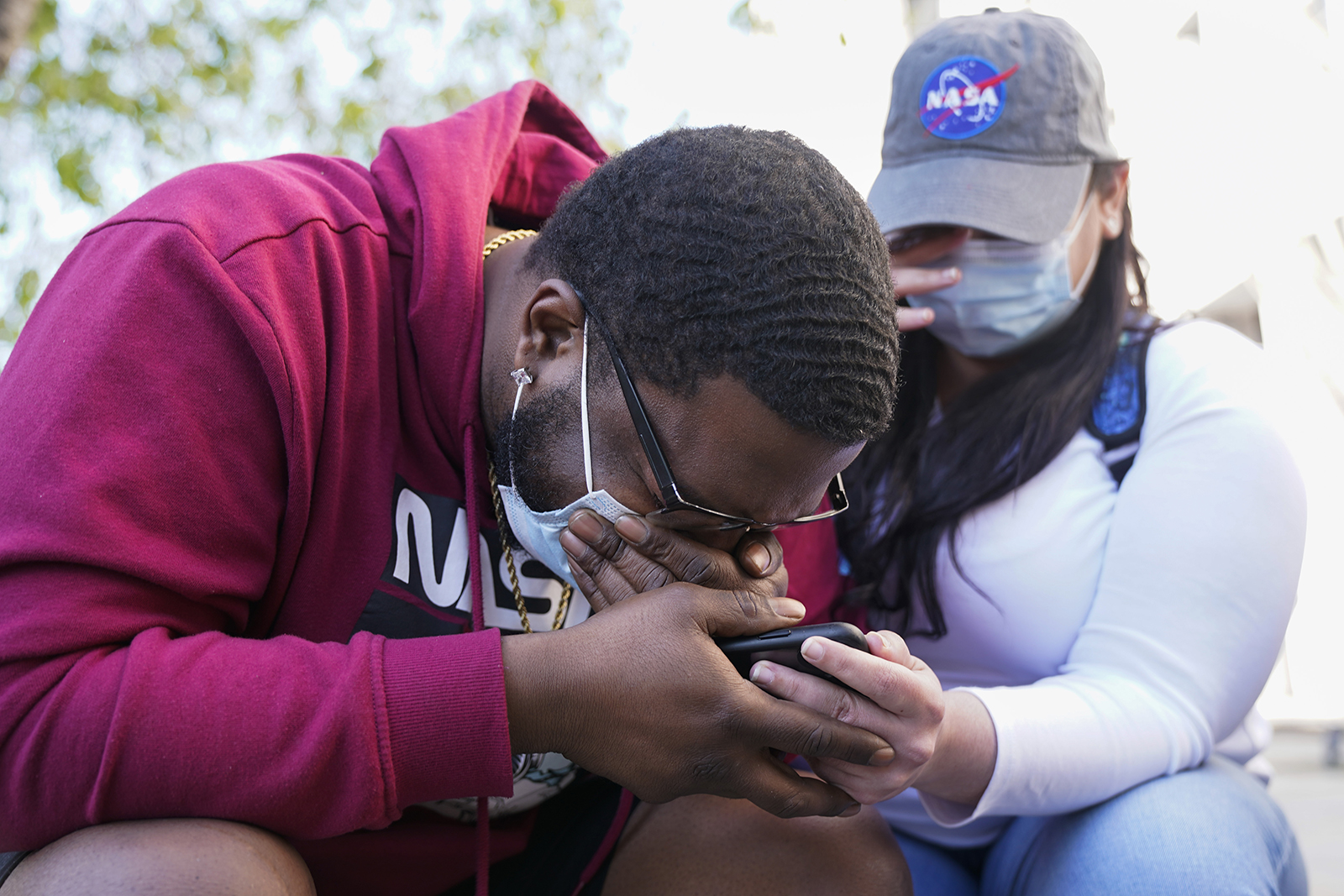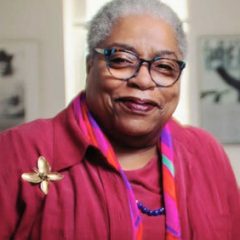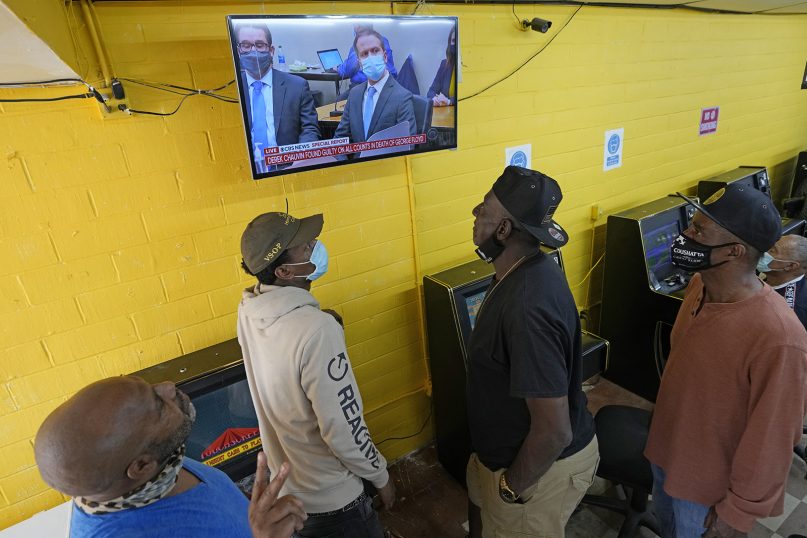(RNS) — So often in moments like Tuesday’s verdict announcement in the trial of George Floyd’s killer, we employ the words of the Prophet Amos: “Let justice run down like waters and righteousness like a mighty stream.”
In our relief we feel as if we can touch the prophet’s words: Hope that justice may be possible began to replace the dread we felt as the jury deliberated, an unresolved pain stemming from the deep and horrible history of police violence and mistreatment.
For too many of us, that history reached so deeply into our personal histories that we did not dare anticipate a guilty verdict. It would take only one stubborn juror, persuaded by the distractions of carbon monoxide or an enlarged heart or drugs, to hang the jury and prevent a unanimous guilty verdict. We would be asked to observe and honor this as justice, regardless of its outcome.
ARCHIVE: Kneeling to venerate hate: The meaning of a police killing in Minnesota
“I don’t see how it could have been otherwise, “ said a 91-year-old African American woman on Rachel Maddow’s show yesterday, “but I know it could have been otherwise.”
We were asked to consider the trial as an island, prosecuting one man and not condemning all police. In truth, this island lies in a river of history, full of pain, violence, sorrow and injustice. Thus, when the verdicts came down — guilty, guilty, guilty — up went prayers and tears and upraised hands of praise.
The Floyd case was not my first experience “waiting” for “justice” — waiting for indictments, discipline, charges and, all too infrequently, verdicts from a trial involving police violence. Thirty years ago, the morning after the beating of Rodney King, I faced a classroom full of white students. I had not had time to process my shock and anger, and I was hoping to get through class, go to my office and just sit and catch my breath.
But one student raised her hand and asked about a video she had seen of Martin Luther King Jr. at the 1963 March on Washington: What would Dr. King think of the beating of Rodney King?
Not knowing what to say, I started to speak, stream of consciousness, based on my experiences in civic engagement, court observation and teaching criminal justice courses. “If they charge the officers … ,” I began, but was immediately interrupted by a student shouting, “If they charge the officers! If they charge the officers! How can you say, ‘If they charge the officers’?!”
Acknowledging that Rodney King was still alive, I spoke a truth that still stands: “Every Black person in America can call the name of someone who has died at the hands of the police under far more egregious circumstances.”

London Williams, 31, left, of Harrisburg, Pennsylvania, bursts into tears April 20, 2021, in Washington, after hearing that former Minneapolis police Officer Derek Chauvin was convicted of murder and manslaughter in the death of George Floyd. (AP Photo/Jacquelyn Martin)
The name I lived with was Levi Hart. In July 1980, the unarmed, Black 14-year-old boy was caught in a stolen car in Boston by an officer who first fractured Levi’s skull, then shot him dead, later claiming Hart was trying to take the officer’s gun. In spite of protests led largely by clergy, no charges were ever filed. Even some police officers were shocked that the officer was not indicted.
So determined is the fraternity of police officers to shape the world in their favor that the city’s police union later opposed a Black lawyer’s nomination to become a judge, mistaking him for a minister who had led a demonstration against Hart’s killer. (We do still look all alike, apparently.)
Hart was my name, but any Black American who regularly read Jet magazine knew of similar fatal encounters in other cities. The successful defenses of police officers in one city became precedent and policy for defending and protecting police elsewhere.
I knew from a young age, as a Black person in America, about the power of the police and the need to behave circumspectly. As a 10-year-old, I sat in my church’s fellowship hall listening to my father, a deacon and director of our Baptist Youth Fellowship, and one of the early Black agents for the Internal Revenue Service’s Alcohol and Tobacco Tax Division (now the ATF), admonish the teenagers, mostly boys, to “always carry your dime.”
“If the police try to arrest you, go with them,” he said. “Do not even snatch your hand away! When you do that, you have committed an arrestable offense. Use your dime to call me, your parents, or the pastor and let us handle the police.”
I am now 73 years old and I have lived and walked with those instructions for the last 63 years. White colleagues still express shock at the care with which I prepare for possible police encounters. For Black Americans, dealing with the police can be akin to feeding a baby dragon: How do you do it? Very carefully.
Floyd’s murder was a lightning flash across the nation, one that has refused to go dark, exposing a kneeling police officer seemingly venerating hate and inhumanity. It calls to us as a beacon for activism. All these years later, my student’s question still hangs over case after case of black people’s fatal encounters with white police officers — what would Dr. King say?
In that 1963 speech my student watched, King charged us “to hew out of the mountain of despair, a stone of hope.” The healing of the nation requires hard work, actually digging into the hard rock of institutional, systemic racism. The criminal justice system (and therefore the role of policing) is just one area that calls us to reparative service.
We need to begin to heal from all the horrors of our histories and heritages. Doing so involves naming the horrors and understanding the forces that shape them. This moment of accountability, this island in a river of painful history, invites us to engage our gifts of courage, sanity, love and personal energy to imagine criminal justice and policing anew.
RELATED: Faith leaders praise Derek Chauvin’s guilty verdicts, acknowledge work ahead
During the trial, we learned that Floyd, whatever may have been his problems, was a man with a praying spirit. When asked how she had the strength to help mothers who are grieving, Gwen Carr, the mother of Eric Garner, another Black man killed by police, replied, “I have to pray a lot.”

Cheryl Townsend Gilkes. Courtesy photo
We all need to “pray a lot,” as we dig out the stones of healing and hope.
(Cheryl Townsend Gilkes is the John D. and Catherine T. MacArthur Professor of African American Studies and Sociology at Colby College and an assistant pastor for special projects at the Union Baptist Church in Cambridge, Massachusetts. She is the author of “If It Wasn’t for the Women: Black Women’s Experience and Womanist Culture in Church and Community.” The views expressed in this commentary do not necessarily reflect those of Religion News Service.)





